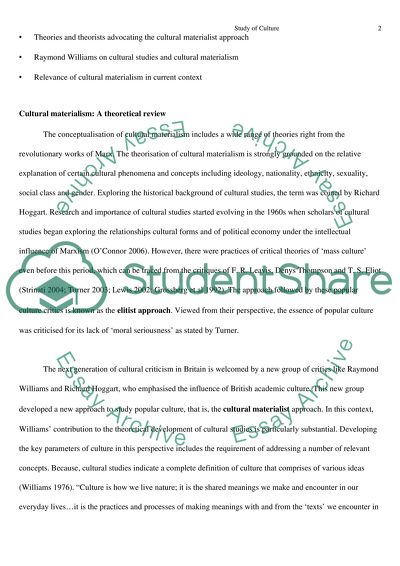Cite this document
(“Raymond Williams and His Contribution to the Study of Culture Essay”, n.d.)
Raymond Williams and His Contribution to the Study of Culture Essay. Retrieved from https://studentshare.org/culture/1561367-raymond-williams-and-his-contribution-to-the-study-of-culture
Raymond Williams and His Contribution to the Study of Culture Essay. Retrieved from https://studentshare.org/culture/1561367-raymond-williams-and-his-contribution-to-the-study-of-culture
(Raymond Williams and His Contribution to the Study of Culture Essay)
Raymond Williams and His Contribution to the Study of Culture Essay. https://studentshare.org/culture/1561367-raymond-williams-and-his-contribution-to-the-study-of-culture.
Raymond Williams and His Contribution to the Study of Culture Essay. https://studentshare.org/culture/1561367-raymond-williams-and-his-contribution-to-the-study-of-culture.
“Raymond Williams and His Contribution to the Study of Culture Essay”, n.d. https://studentshare.org/culture/1561367-raymond-williams-and-his-contribution-to-the-study-of-culture.


